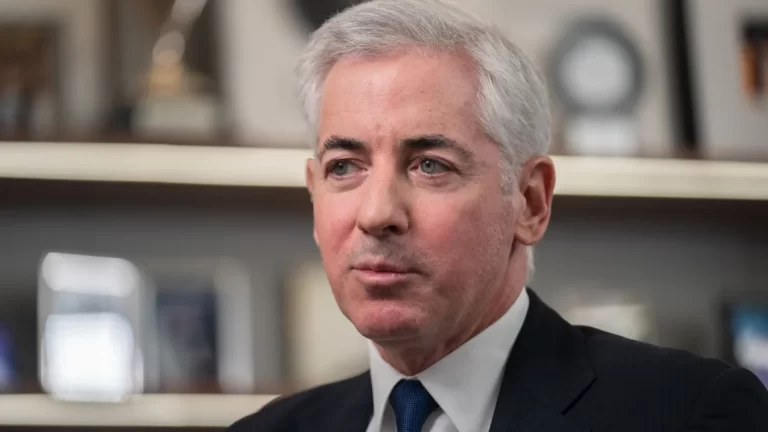Bill Ackman is accustomed to institutions bending to his will. He’s also notorious for not letting up whenever they don’t.
The hedge fund manager’s signature investing strategy — buying shares in a company and then not shutting up until its leaders do what you say — has expanded in recent years to include a kind of whack-a-mole online social activism.
Ackman, no stranger to controversy, has become something of a social media loose cannon. On X, the platform formerly known as Twitter, Ackman regularly floats his contrarian takes on the issues of the day (such as his belief that Kyle Rittenhouse, who killed two protesters in Kenosha, Wisconsin, was a “civic-minded patriot,” or that the now-convicted crypto fraudster Sam Bankman-Fried was “telling the truth.”)
But what began three months ago as a plea for college leaders to take a stand against antisemitism has morphed into what Ackman describes as stepping in to “save” his alma mater, Harvard. He’s built a small army of broadly right-wing social media minions, loosely united by their derision of DEI (diversity, equity and inclusion efforts), and their stridently pro-Israel political views.
A quick recap of how we got here:
- Ackman in October tweeted his displeasure about the the way the leaders of Harvard, MIT and the University of Pennsylvania handled student protests over the Israel-Hamas war.
- The university presidents’ bungled testimony before Congress fueled public outrage and prompted Ackman to agitate for their ouster.
- A right-wing news site, the Free Beacon, began leveling plagiarism accusations against Claudine Gay, Harvard’s president. Ackman seized on those accusations as part of his argument for Gay to be replaced.
- Gay stepped down earlier this month, following weeks of harassment that included death threats, racist slurs and getting harassed by doxxing trucks near her home.
It may have seemed then that the scandal, such as it was, was done.
But Ackman continued rabble-rousing, setting his focus on the president of MIT, who was also under fire for congressional testimony that failed to explicitly condemn one lawmaker’s hypothetical about whether “calling for the genocide of Jews” counts as bullying and harassment on campus. (MIT has stood firmly behind its president, Sally Kornbluth.)
A spokesman for Ackman did not respond to a request for comment.
Plagiarism scandal deepens
Then, late last week, the news site Business Insider made Ackman furious.
BI published two stories accusing Ackman’s wife, former MIT professor Neri Oxman, of plagiarizing parts of her doctoral thesis, including lifting some content from Wikipedia. The report drew parallels between the kinds of errors Gay was accused of — missing quotation marks and improper citations of other authors — and similar mistakes in Oxman’s work.
Oxman, who left MIT in 2020, acknowledged and apologized for four instances of improper citations reported by BI on Thursday.
She hasn’t responded to a second report from the outlet, published Sunday, that found 28 more alleged examples of plagiarism. A spokesperson for Oxman didn’t respond to CNN’s request to comment.
CNN has not independently verified the Business Insider report.
Ackman has since lashed out at both MIT, which he believes was the source for the accusations against Oxman, and at Business Insider, which he claims breached “the code of the road” that his family should be off-limits from media scrutiny.
Yet Ackman himself was widely criticized for violating an ethical code when he called for students to be publicly identified and effectively blacklisted in the job market for their affiliation to groups that blamed Israel for the October 7 attacks by Hamas.
He’s also joining the plagiarism war, saying that he would review the work of BI’s reporters and staff, as well as every current MIT professor, its president and governing board.
While it’s clear that Ackman is fired up, he hasn’t — in several long and defensive X posts — elaborated on what concrete steps he intends to take to remedy the problems he sees in higher education and media. But he described that fight as “the most important battle I have ever taken on.”
“I will pursue societally important issues including problems with how our media operates, the ideological take over of our education system, discrimination in all forms, and free speech to the end of the earth.”
“Not that I wasn’t incredibly motivated before, but if it is possible, I am even more motivated now.”
A history of holding on
Ackman, the founder and CEO of the hedge fund Pershing Square Capital Management, has notched a number of wins as one of the most prolific activist investors on Wall Street. But it was his disastrous $1 billion short of Herbalife that will always haunt his reputation.
In 2012, Ackman took a short position against the dietary supplements company, which he claimed was a scam. At the outset, he defended the move as an ethical choice.
But a rival activist investor, Carl Icahn, took the other side of the bet, and promoted the company’s stock just as loudly as Ackman trashed it. Their public feuding about Herbalife — including a particularly memorable on-air battle on CNBC in 2013 — became the stuff of Wall Street legend.
Ackman held out for six years, long after it became clear to others that he’d lose his shirt on the bet.
The Herbalife bet, more than any other of Ackman’s bold plays that made him a household name on Wall Street, illustrates how relentlessly he will hang on when he believes there is an ethical or moral question behind the bet. He would seemingly rather take a massive financial blow than back off.
If history is any guide, it’s safe to assume Ackman isn’t just sounding off on social media for kicks. He has the microphone and, crucially, the money, to continue his crusade indefinitely.
“Some have questioned my commitment,” he wrote on X Monday. “They don’t know me.”
— CutC by cnn.com


